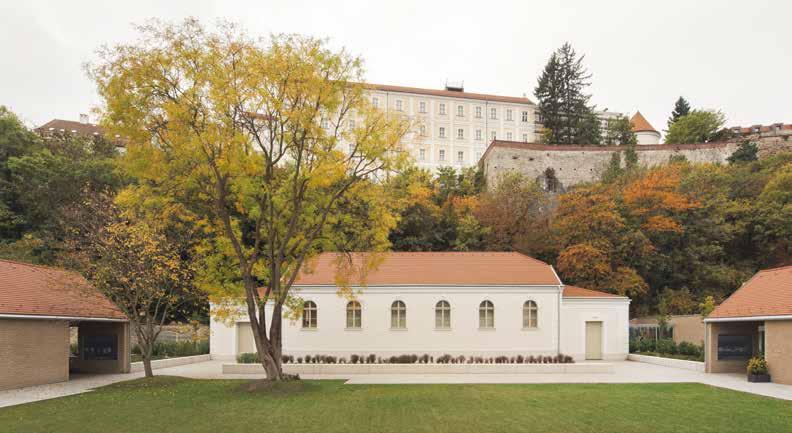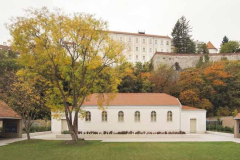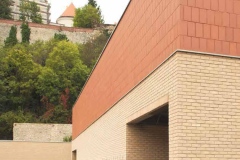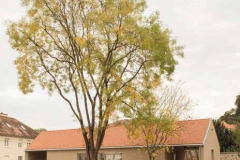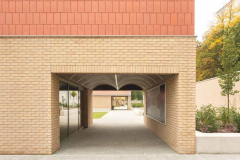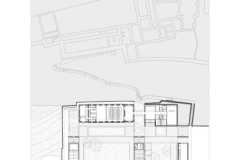Cultural Centre Orchestrating a City
Kabóca Puppet Theatre, Art Gallery, Community Space, Veszprém
Architects: Zsolt Zsuffa, László Kalmár
Text: György Szegő
Photos: Marietta Varga
Built at the foot of the castle rock in Veszprém, in a landscape setting resembling Tuscany, this complex was completed at the end of 2023, in September, when Veszprém-Balaton was a European Capital of Culture. Although it was not an ERDF project, the city recognised that this scheme could be realised with EU funding. The EU competition called for family- and child-friendly project components; the municipality envisaged the creation of a puppet theatre and a children’s activity centre, and thus won the tender. Architects were asked to design a mixed-use, multi-functional complex, hoping that the different functions would support one another, and provide a suitable venue for contemporary, high-quality arts as well as cultural performances, conferences and other events. The core of the structure was the 1906 classicist gymnasium of the former Piarist High School in Deák Ferenc Street. Its conversion and extension, with the addition of four new buildings, created a complex events centre. Abandoned for more than a decade, the building has become the new home of the well-known Kabóca Puppet Theatre company. The new buildings’ restrained scales and dimension, blending into the landscape, lends the high-rise theatre a sense of prestige, and the installation makes fairly good use of the space at its disposal.
Architects: Zsuffa and Kalmár Architectural Studio
Architects of the competition: Fruzsina Barta, Zita Csaba, Tamás Getto, László Kalmár, Péter Krompáczki, Gergely Sztranyák
Outline design: Tamás Butora, Tamás Getto, László Kalmár, Ádám Kern, Rebeka Monory, Péter Zilahi
Preliminary plan: László Kalmár, Ádám Kern, Rebeka Monory
Realization plan: László Kalmár, Rebeka Monory
Interiors: Péter Kronavetter
Building construction: Géza Kapovits, Dániel Heincz
Furniture construction: Gábor Szeles
Structure: Dezső Hegyi
Landscape: Árpád Kovács, Gábor Szohr
Fire protection: György Decsi
HVAC: Benedek Végh
Electrical engineering: Dávid Sándor
Public utilitites: Katalin R. Nyikosné, Béla Bévárdi
Roads: László Dulicz
Accessibility: Anna Kormányos
Kitchen technology: Ágnes Straub
